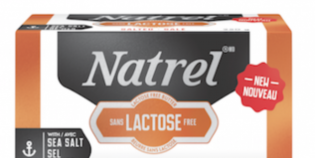Walmart thought shoppers would like to use a smartphone app to scan items they want to buy as they walk through store aisles. In theory, they could speed through self-checkout.
But customers couldn’t figure out how to work the “Scan & Go” app during tests in 200 stores, so Walmart nixed it.
Instead of looking at the app as a failure, though, Walmart took what it learned from “Scan & Go” to create another service: it found that customers like being able to track their spending, an insight that became the impetus for a national program that enables shoppers to store electronic receipts.
The story behind “Scan & Go” illustrates how traditional retailers increasingly are using the nimbler approach to innovating that Silicon Valley startups are known for. Rather than perfecting a program before rolling it out – as most retailers do – they’re doing more testing and refining as they go along.
If the tests work, they’re rolled out nationally. If they don’t, retailers shutter them and incorporate what they learn into other projects.
The test-and-learn approach comes as retailers face intense competition for shoppers, many of who are still in a recession mindset. Walmart, for instance, has had sales declines at its established U.S. discount stores for over a year.
The retail industry also is fighting to keep pace with rapidly changing technology and online retailers like Amazon.com that lure customers with low prices and beefed up services.
“Retailers need to fail often and learn quickly and adapt and then adopt,” said Lori Schafer, executive adviser at SAS Institute, which creates software for retailers.
Here’s a look at three more Walmart tests and what the company learning from them:
Delivery
The details: Walmart is testing same-day delivery of groceries, fresh produce and other products in San Jose and San Francisco in California and Denver. Shoppers select a time slot and their items are delivered on the same day if ordered by 8 a.m. Delivery fees range from $3 to $10.
It’s also testing same-day delivery of only general merchandise like toys and TVs in Northern Virginia, Philadelphia and Minneapolis if ordered by noon. Customers pay $10 for an unlimited number of items.
In January, Walmart began offering customers the option to order online and pick up their items in stores in Denver.
What happened: Walmart said that same-day delivery has been well received. But in Denver, the pickup option is growing faster than home delivery. Executives reason that shoppers don’t want to be holed up at home waiting for deliveries. It doesn’t have any plans to roll it out nationally yet.
Lessons Learned: Ravi Jariwala, a Walmart spokesman, said the retailer is encouraged by the results of the tests. “We’re trying to understand how we can provide convenient options for customers to shop online for groceries,” he said.
Subscription snack service
The details: In late 2012, Walmart launched Goodies.co, a mail snack subscription service that lets shoppers taste five to eight different surprise snacks that weren’t sold on the discounter’s shelves for a monthly fee of seven dollars. Walmart then solicited feedback on the site’s social community so that it could use the responses to spot food trends.
What happened: Goodies.co closed down a year after it was launched even as the subscription business has been a hot area as companies test shoppers’ appetites to have everything from socks to razors to beauty products delivered on a regular basis. For some services, the exact products remain a mystery until they’re shipped.
Walmart declined to elaborate, but analysts say Walmart customers weren’t interested in paying for surprise items.
“I think any subscription service Walmart puts forth has to be aimed at the sweet spot of their shopper–straight up groceries and toiletries,” said Scott Shamberg, a managing director at Chicago-based TPN, a retail marketing agency.
Lessons learned: Walmart said it learned how to interact with customers in soliciting feedback on new products and launched an invitation-only review program for the winter holidays to get input on a curated list of products. It’s working on another iteration of product reviews.
3-D printing
The details: Last November, Walmart’s U.K. operation, Asda, began testing 3-D printing technology that allows shoppers to get 8-inch figurines of themselves. The cost: 60 pounds, or US$100. The service moved around from various stores, but in June, was officially launched at one in Manchester.
What happened: ASDA spokesman Russell Craig said the test has been so popular that the retailer is considering rolling it out to other stores. “It’s become the new family portrait,” he said.
Some of Walmart’s Sam’s Club stores also are testing 3-D programs. Last month, at the newly opened Sam’s Clubs in Montgomery, Ill., and another outside Fort Worth, Tex., 3-D printers scanned shoppers’ faces and then they had resin printouts of their heads placed on action figure-sized bodies of one of three Marvel characters.
Lessons learned: Walmart says the tests are the beginning of customization. Walmart’s CEO Doug McMillon told shareholders in June that he could imagine a day when the retailer can print small household items or replacement parts in a store or a distribution centre.
This story originally appeared in Canadian Grocer









